
co-ordinated by the Research Institute for Managing Sustainability
You are here: Home > Training Info
> Trainers  |
|||||||||||||||||||||||||||||||||||||||||||||||||||||||||||||||||||||||||||||||||||||||||||||||||||||||||||||||||||||||||||
EASY-ECO TrainersE-course Experts (2008-2010) and Core Course Trainers (2005-2007)
Case Trainers (2005-2010)
Tutors
E-course Experts (2008-2010) and Core Course Trainers (2005-2007)
|
|||||||||||||||||||||||||||||||||||||||||||||||||||||||||||||||||||||||||||||||||||||||||||||||||||||||||||||||||||||||||||
 |
Clive GeorgeSenior Research Fellow at the Impact Assessment Research Centre in the University of Manchester's School of Environment and Development |
Research Interests Present and future research: Integrated impact assessment; sustainability impact assessment; trade impact assessment; regulatory impact assessment; evaluation of national sustainable development strategies. Education Professional Positions |
|
|
||||
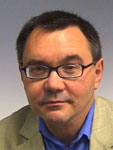 |
Frans L. LeeuwProfessor of Policy and Program Evaluation with the Department of Sociology, Utrecht University |
Frans L. Leeuw is Director of the Research, Statistics and Information Department of the Netherlands Ministry of Justice in The Hague. He is also a professor of Policy and Program Evaluation with the Department of Sociology, Utrecht University. Prior to his current position, Dr. Leeuw was Chief Review Officer with the Education Review Office of the Government of the Netherlands. He has also led the Performance Auditing and Evaluation Division of the Netherlands’ National Audit Office in The Hague, been a Dean at the Netherlands Open University, and was an associate professor for social policy research at Leiden University. Dr. Leeuw has served as a consultant for the World Bank Institute, as well as the Operations Evaluation Department of the World Bank, lecturing and advising on evaluation studies. He has consulted with governmental evaluation units within the Netherlands, the European Union in Brussels, and the OECD/ DAC in Paris. Dr. Leeuw is the former President for the European Evaluation Society and the current President of the Netherlands Evaluation Society. |
|
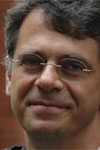 |
André MartinuzziHead of the Research Institute for Managing Sustainability (RIMAS) at the Vienna University of Economics and Business Administration |
Dr. André Martinuzzi studied business administration at the Vienna University of Economics and Business Administration and has been working as a project manager at the Department of Environmental Economics and Management since 1993. He has a Dr.-degree in Business Administration. He specialised on the evaluation of sustainable development and conducted basic research and applied research projects (e.g. as an evaluator on behalf of the City of Vienna and the Austrian Federal Ministry of Environment). He was one of the founding members of the environmental task force in the German Evaluation Association (DeGEval). Since 1998 he has been coordinating the interdisciplinary team of the Research Institute for Managing Sustainability at the Vienna University of Economics and Business Administration and founded the EASY-research network – a top-level scientific network of scientist in 16 countries (including US- and Canadian experts). Since 2001 he worked as a scientific coordinator of Austrias Sustainability Strategy on behalf of the Austrian Federal Ministry of Environment. In 2003 he worked as a scientific editor of the Corporate Social Responsibility vision statement of the Austrian Industry and as a process consultant for the Austrian Forest Program. As a project manager he is leading a group of researchers at the Research Institute for Managing Sustainability of the Vienna University of Economics and Business Administration. He is giving lectures on Environmental Management and scientific methodologies at the Vienna University of Economics and Business Administration. He was guest editor of a special issue of Greener Management International on the topic "Evaluating Progress towards Sustainable Development: Politics, Process and Strategy". |
|
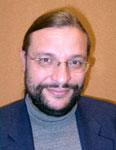 |
Wolfgang MeyerSenior Scientist and head of the ‘Labour Market and Environmental Evaluation’ department at the Center for Evaluation (CEval), Saarland University |
Dr. Wolfgang Meyer, born 1959 in Ludwigshafen/Rhein (Germany), Sociologist (Diploma at the University of Mannheim, Germany, 1989), PhD at Technological University Chemnitz, Germany (1997); Senior Scientist and head of the ‘Labour Market and Environmental Evaluation’ department at the Center for Evaluation (CEval), Saarland University since 2002; Chair of Working Group ‘Evaluation of Environmental Policy’ of the German Evaluation Society (DeGEval); Member of the ‘Greening of Industry Network’ (GIN), the ‘Environmental Policy and Global Change Network’ of the German Political Sciences Association (DVPW) and the Sections ‘Sociology and Ecology’, ‘Social Indicators’ and ‘Social Inequality and Social Structure Analysis’ of the German Sociological Association (GSA); Founder member of the German Evaluation Society (DeGEval) and former executive editor of the German ‘Zeitschrift für Evaluation’ (ZfEv). Research Topics: Environmental Sociology, Evaluation Research, Quantitative and Qualitative Methods, Labour Market Research, Social Change. |
|
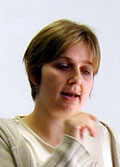 |
Karolina MikovaVice–director of Partners for Democratic Change Slovakia (PDCS) |
Experience with Evaluations: Evaluation of the Trust Program: Permanent Development and Sustainability of the Slovak 3rd Sector, Consortium of TRUST PROGRAM: Open Society Foundation (NOS-OSF), Educational Foundation of Jan Hus and Children of Slovakia Foundation, 2005.Evaluation of the program People and Places, Via Foundation, 2002.Evaluation of the Program for Support of Community Foundations, Open Society Foundation (NOS-OSF), 2000 and 2002 Education: 1998-1999 John Hopkins University, Institute
for Policy Studies (IPS), Baltimore, USA, Junior Urban Fellow,
nine months fellowship program, final paper: ”Community
Visioning and Strategic Planning Process: Three Baltimore’s
Case Studies,” |
|
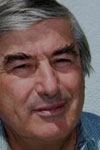 |
Uwe SchubertChair in Environmental Economics and Management, Vienna University of Economics and Business Administration |
Professor Uwe Schubert is head of the department of Environmental Economics and Management at the University of Economics and Business Administration in Vienna. He is also member of the university senate and head of faculty for formal and social science. Uwe Schubert has a doctorate in laws from the Vienna University and a Ph.D. in economics from the University of California, San Diego, U.S.A. He received his habilitation (venia docendi) for Urban and Regional Planning, Regional Science, and Environmental Economics at the University of Economics and Business Administration, Vienna. He was a guest professor at the Institute for Labor and Technology (IAT), Gelsenkirchen/North-Rhein-Westphalia, Germany, at the ETH Zurich, Switzerland, as well as Universities in Poland, Denmark, U.S.A, and Australia. He has been a member of the advisory board of the Austrian Association for Technology and the Environment (ÖGUT), of the committee for the drafting of a national environmental plan (NUP) for Austria, and in the OECD - experts' mission to evaluate Austria’s environmental policy. He served in a number of scientific functions such as chairman of the Regional Science Association (German speaking section) and in the editorial board of the "Annals of the Regional Science Association" (German speaking section). He participated and coordinated a number of EU-research projects and published extensively in scientific journal and books. |
|
 |
Thomas WidmerHead of the Research Unit on ‘Policy Analysis & Evaluation’ at the University of Zurich’s Department of Political Science |
Thomas Widmer is a lecturer and the head of the Research Unit on ‘Policy Analysis & Evaluation’ at the University of Zurich’s Department of Political Science. He was born in Switzerland in 1963 and received his M.A. (1991) and Ph.D. (1995) in political science from the University of Zurich. During the 2002/2003 academic year, he was a Visiting Scholar at Harvard University and for the summer term 2005, he is acting part time as an ad-interim professor at the Department of Politics and Management, University of Konstanz, Germany. Widmer has been working in the area of evaluation since the late 1980s. Since his main interest lies in the area of evaluation quality, he has worked in the field of meta-evaluation and evaluation standards for many years. As head of the Research Unit on ‘Policy Analysis & Evaluation’, he currently manages evaluation and research projects on public health and education, right-wing extremism and institutional reform. He is involved in the Swiss Evaluation Society as a member of the Board and as the head of the Task Force on Evaluation Standards. In addition, he is a member of the Executive Board of the European Evaluation Society (EES) and responsible for the EES working group on standards, guidelines, codes and principles. |
|
Case Trainers 
Pasquale De ToroFaculty of Architecture, ‘Federico II’ University of Naples Trento Training |
|
Dr. Pasquale De Toro is a researcher at the Faculty of Architecture of the ‘Federico II’ University of Naples and a professor of methods and techniques for plans and projects assessment. Case Study: SEA for a town in southern
Italy with a strong focus on participatory processes |
|
Alberto PistocchiResearcher, Joint Research Centre Trento Training |
|
Dr. Alberto Pistocchi is an environmental engineer and land planner and holds a Ph.D. in georesources and geotechnologies from the University of Bologna. He has been working as a researcher, consultant and project manager in the field of environmental impact assessment, water resources management and environmental modelling. Case Study: SEA for a regional-level
spatial plan in Italy with the use of Multi-Criteria Decision
Analysis techniques |
|
Stefano BagliSenior Engineer, GECOsistema srl Trento Training |
|
Dr. Stefano Bagli is Senior Engineer at GECOsistema srl and an expert in environmental and human health risk assessment and spatial modelling. He has been a postdoctoral researcher at the DG Joint Research Centre of the European Commission, Ispra, Italy. Case Study: SEA of a land-use plan at
a municipal-level with the utilisation of Geographical Information
Systems (GIS) and environmental modelling |
|
 |
Hans MevesSenior Consultant and founder of the Network Bureau Europe Bilbao Training |
Dr. Hans Meves, senior consultant and founder of the Network Bureau Europe, received his academic and professional training in geography, regional development and social environmental studies at universities in Kiel, Frankfurt, Sapporo, Yokohama, Tokyo and College Park/Maryland. He has extensive experience in European and international collaborative projects, with a thematic focus on the implementation of sustainability respectively development issues. Since he returned to Germany in 1997, he has worked on EU-issues in the public and private sector. After another year of postgraduate studies of microeconomics, he served as EU-programme and project consultant for the “Investitionsbank Schleswig-Holstein”, EU-technology transfer and SME consultant for an innovation centre and incubator, as European business and project consultant for a private consultancy firm, and EU and international policy and project consultant for the regional government of Schleswig-Holstein. In 2003 he founded the Network Bureau Europe – international consultancy for knowledge, innovation and sustainability. The organisation focuses on evaluation, processes and projects of EU and international regional co-operation initiatives. Recently sustainability evaluation has become a key methodical approach in N.B.E.’s strategic process and project development for regional and organizational competitiveness. Case Study: Strategic Environmental Assessment (SEA) as Means of Sustainability-Evaluation: The Case of the Central Baltic Cross-Border Programme (2007-2013) |
|
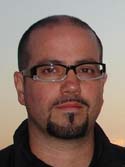 |
Joan NogueraAssistant Professor, Institute of Local Development, University of Valencia, Spain Bilbao Training |
Dr. Joan Noguera is Doctor in Geography (July 1999), his dissertation presented the results of a research on the Evaluation of Rural Development Policies in one of the most lagging rural areas of Spain (the Meridional Iberic System). The LEADER and PRODER programs, among other, were in-deep analysed with a methodology combining qualitative and quantitative methods. During 1999 he participated in the intermediate evaluation of LEADER II in the Region of Valencia. In 2001 he received the “Doctorate Extraordinary Award” of the University of Valencia granted to the best Doctoral Thesis in Social Sciences. From 1994 he has been involved in several competitive research projects of different EU Framework Programs. All these projects relate to diverse key territorial development issues (rural development policies, public-private partnerships for development, periferality and new factors for territorial development, knowledge and local development, etc.). In 2005 he joined the group “Innovation and Local Development” of the Institute of Local Development where he works in accessibility and local development. He has participated in several official evaluations of rural development policies and programs and has undertaken coordination of the Regional Unit of the LEADER II Observatory in Spain. He is responsible for several post-graduate studies at the University of Valencia. His present position is Professor of Regional Geography at the Institute for Local Development of the University of Valencia and sub-director of the International Centre of Gandia of the University of Valencia. Case Study: The LEADER Method. A multidimensional
evaluation of sustainable development in rural areas of the
European Union |
|
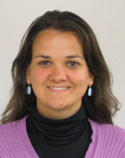 |
Mònica Lomeña GelisResearch Fellow, Office of Evaluation and Oversight, Inter American Development Bank (IADB) Bilbao Training |
Mònica Lomeña Gelis has a degree in Environmental Sciences at the Universitat Autónoma de Barcelona. She has done a Postgraduate Course in International Development (Universitat Politècnica de Catalunya) and in Environmental Impact Assessment (UAGRM-Bolivia). She has also done a Masters in International Development and Environment (University of East Anglia, UK). She has also attended several specialization courses in evaluation of sustainability, among them, the EASY-ECO itself. She has worked as a Research Fellow in the Office of Evaluation and Oversight of the Inter American Development Bank (IADB) for the past two years, conducting sustainability evaluations of Projects and Country Programs. She has worked for two years in Bolivia as the Country coordinator of NGO development projects, conducting the technical and economic monitoring from the field. She also has experience in teaching environmental education and international development and doing consultancy in environmental management for Spanish companies. Case Study: Evaluation of the Sustainable
Development Program in the Mayan Biosphere Reserve (Guatemala) |
|
Rafael Monterde DíazAssociate Professor in Evaluation at Universidad Politécnica de Valencia, Spain Bilbao Training |
|
Rafael Monterde Díaz holds a PhD in Project Engineering and Innovation, and BSc/MSc in Industrial Engineering. He is an Associate Professor in Evaluation at Universidad Politécnica de Valencia. His research is focused on Discrete Multicriteria models for Impact Evaluation and Indicator's Systems for Sustainability. He usually participates in postgraduate programs in Development and related areas. He serves as an evaluator for public governments, private firms and NGO, supporting evaluation capacity building processes. He is also an active blogger and creator of EVALUATECA, the first Evaluation Blog in Spanish language (http://evaluateca.wordpress.com) Case Study: Evaluation of the Sustainable
Development Program in the Mayan Biosphere Reserve (Guatemala) |
|
Mykhaylo SalnykovEconomist, Sokrat Investment Group, Kyiv, Ukraine Lund Training |
|
Mykhaylo Salnykov has received his PhD in Economics from Simon Fraser University in 2008. Prior to that he also obtained MA in Economic Theory (Kyiv School of Economics, 2004) and MSc in Environmental Sciences and Policy (Central European University, 2002). Mykhaylo participated in over 20 projects in environmental impact assessment and audit and is an author of a number of articles in the fields of environmental economics. Recent projects include publications in environment and security in Central and Eastern Europe (for UNEP/UNDP in 2007) and energy and security (for UNDP in 2009). Currently Mykhaylo is working as an economist for the Sokrat Investment Group in Kyiv, Ukraine. Case Study: Assessing the integration
and sustainability of Ukrainian energy policy |
|
 |
Maia GachechiladzeFreelance Analyst for Environmental and Social Impacts/Risks, UK Lund Training |
Maia Gachechiladze MSc comes from Armenia. She has studied at the Department for Environmental Sciences at the Central European University in Budapest and at the Georgian Technical University in Tbilisi. Currently she is working as a Freelance Analyst for Environmental and Social Impacts/Risks for consulting companies based in UK and Georgia. She is lecturing courses on environmental impact assessment at the Central European University in Budapest, and at the same time pursuing her PhD. degree. Case Study: SEA & HIA of the second
Merseyside Local Transport Plan (2006-2011) |
|
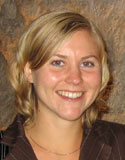 |
Sandra RihmConsultant and team leader at DHV in the Netherlands Lund Training |
Sandra Rihm MSc, is a consultant and team leader at DHV in the Netherlands where she is involved in all types of environmental and sustainability projects. Since 2005, Sandra has prepared Environmental Assessments for all types of development activities and carried out several trainings in the field for authorities in Central and Eastern Europe. Specific activities are establishment of an EIA centre in Turkey and development of an environmental and social management system for banks in developing countries. Sandra is furthermore carrying out a PhD at Central European University in Hungary. Her main research interest is strategic environmental assessment and effectiveness in capacity development activities. Case Study: Integrated Assessment of the
Dutch Delta metropolitan |
|
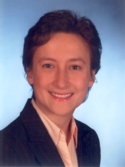 |
Jenny AtmanagaraResearch fellow at the Institute of Geography, University of Bern Saarland Training |
Jenny Atmanagara, PhD is a research fellow and assistant lecturer at the Institute of Geography in Bern, Switzerland. She is involved in research, project management and teaching at bachelor and master level. Her current activities in research and teaching focus on sustainable regional development, tourism and transport, settlement and transport systems, and landscape management. Her projects are placed on different scales from continental to regional level and include time frames from the present to the future (scenarios). Education: PhD in Geography from the Faculty of Natural Science, University of Bern (2007), Diploma in Landscape and Open Space Planning from the Faculty of Landscape Architecture and Environmental Development, University of Hanover (1998). Case Study: Evaluation of the Swiss infrastructure
promotion – political strategies for sustainable mobility in
a tourist region |
|
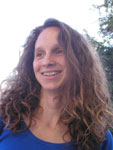 |
Daniele HaiböckConsultant at Rettensteiner Transport Planning & Regional Development; Lecturer at the Karl-Franzens-University of Graz, Austria; Mother of a two-year-old daughter Bratislava Training |
Born in 1972 in Linz, Austria; 1991 – 1997 Studies of Environmental System Sciences at the Karl-Franzens-University of Graz, Austria with focal point geography and spatial planning; 1994 – 1995 ERASMUS Freemover at the University of Perpignan, France; 1997 Graduation Master of Science - master title “Key Players, Power Structure and Co-operation in the City of Graz – Power Structure Analysis as a Starting Point for Sustainable Regional Development”; 1998 – 2005 Consultant and project leader at Rettensteiner Transport Planning & Regional Development in Graz with focus on regional and urban development, evaluation and transport planning; 1998 – 1999 Participation in the elaboration of a comparative EU-wide scientific study “Sustainable Regional Development – Environmental Aspects, State and Trend of Research; 2001 – 2005 Lecturer for Environmental System Sciences at the Karl-Franzens-University Graz with focus on regional development and evaluation; 2002-ongoing Studies of Law at the University of Linz; Advanced Training in the fields of Sustainable Regional Development, Evaluation and Social Competence. Case Study: Evaluation of the development process in six different leader+ regions of Styria, Austria |
|
 |
Stephen WernetProfessor, School of Social Service and Department of Public Policy Studies, College of Public Service, Saint Louis University, St. Louis, MO. Bratislava and Krakow Trainings |
Stephen P. Wernet, Ph.D. is a nationally recognized authority in the field of nonprofit and social work administration. His research program focuses on organizational restructuring through mergers, acquisitions, joint ventures, and strategic alliances as well as web-enhanced and distributed learning in higher education. He has extensive consulting experience with nonprofit and community based organizations. He is recognized and sought for his expertise in the areas of outcome assessment, programmatic and organizational benchmarking, quality management, operational management assessment and operational planning. Dr. Wernet has authored numerous articles and papers on nonprofit organizations, social work administration and distributed learning. Professor Wernet recently completed an edited book, Managed Care in Human Service (Lyceum Books, Inc. 1999) and coauthored Cases in Macro Social Work Practice, Second Edition. (Allyn and Bacon, Inc. 2004) with David P. Fauri and F. Ellen Netting. Dr. Wernet holds his Ph.D. from the University of Texas at Austin and a M.S.W. from the University of Connecticut. Case Study: Stakeholders’
Participation in Designing an Evaluation System |
|
 |
Eva CsobodDirector of The Regional and Environmental Center for Central and Eastern Europe - Country Office Hungary.Szentendre Training |
Eva Csobod is director of the Country Office Hungary of the REC in Szentendre, Hungary. Eva Csobod has a doctorate in chemistry from the Eotvos University, Budapest and she is finishing her Ph.D. studies in pedagogy at the same university in this year. She received a master degree in Environment and Development Education, from South Bank University, London, UK. Key qualifications: in education and training of students and environmental NGOs, international project management, cooperation in regional development, policy development and implementation of the regional operational programme, communication and media, integrated water research management, solid waste management (household), sustainable development (indicators using it in practice, in policy making, in planning, national and local level), global issues and conventions, national park management. Before of her recent position she worked for the Professors House in Budapest as the Head of the Environmental Education and Communication Department and Distance Learning Methodology Department. She participated and coordinated a number of EU-research projects (Tempus-JEP program, BEETA project, Phare program, OECD-ENSI national coordinator etc.) and published extensively in scientific journal and books. She is member of the IUCN Education and Communication Commission. Case Study: SEA of the ROP of the NDP in Hungary |
|
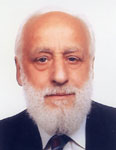 |
Leo JansenChairman of the Commission for Sustainability of The Technical University of Delft. Szentendre Training |
Prof. Em.Dr.Ir. J.L.A. Jansen is an active pensioner, former Chairman of The Dutch Interministerial Programs Sustainable Technology Development, now chairing the Commission for Sustainability of The Technical University of Delft, the jury of the Austrian program “Fabrik der Zukunft”, member of several advisory councils and committee’s in the field of technology development, sustainable development, innovation and higher education. He is chairing the NGO: North Sea Foundation. Former appointments: In 1999 he was honoured to be Commander in the order of Oranje
Nassau. Case Study: Program Habiforum |
|
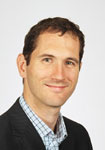 |
Benoit SimonDirector at Eureval-C3E, in charge of environmental and sustainable development policies.Szentendre Training |
Benoit Simon works as a director at Eureval-C3E, in charge of environmental and sustainable development policies. He carries out assignments regarding evaluation, design and monitoring of public policies, programmes and measures. Benoît Simon carried out studies at the Centre for International Research on Environment and Development (CIRED), linked with the French Centre for Scientific Research. The studies dealt with industrial economics, environment, innovation and transports. Beforehand, he worked as a researcher at the Maastricht Economic Research Institute on Innovation and Technology, Netherlands, and at the Centre for Industrial Economy, Ecole des Mines, Paris. Case Study: Evaluation of the “Plan Loire Grandeur Nature” |
|
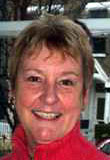 |
Libby CooperDirector of Amber Analysis (a research, evaluation and capacity building consultancy) Brasov and Saarland Trainings |
Libby Cooper is Director of Amber Analysis - a research, evaluation and capacity building consultancy that works internationally and in the UK with charities, grant making organisations and central and local government departments. Libby has twenty-two years experience of working in the field of evaluation and organisational development in the UK and fourteen years experience of working in Russia, Central and Eastern Europe, South America and the Caribbean on evaluation and development issues. In 1990 Libby founded Charities Evaluation Services (CES) in the UK – an organisation that was initiated by the British Government’s Home Office and other donors to help improve the effectiveness of civil society organisations through the use of evaluation and quality assurance. She was its Director for eleven years and became known as one of the most important specialists in evaluation in the UK. Libby was a founding Board member of the UK Evaluation Society. Libby has managed programmes for a wide selection of donors (Governments, multilateral and bilateral agencies, Foundations and Corporates); supervised and personally conducted programmatic and project evaluations in the UK and abroad of a wide variety of initiatives: including international networks, government grants programmes, international and UK donor social programmes, national organisations and small community programmes. She has provided training in management, evaluation and institutional development to a wide range of initiatives and has conducted a variety of research studies in the UK and abroad. Prior to the Directorship of CES, Libby lectured in social research at The London Metropolitan University and founded and directed its Community Research Advisory Centre. Libby’s recent work includes the management of a large DFID funded consultancy programme to help establish the Foundation for Civil Society Development in Croatia; the completion of a social capital research study in Croatia; the production of a strategic plan for a Pan African community development NGO; an evaluation of USAID’s small grants programmes in Croatia; an evaluation of Enfield’s Children’s Fund programme and a study of the interface between legislation on NGOs, taxation and the delivery of social services in Ukraine. Case Study: An Evaluation of the Croatian Governments Grants Porgramme for NGOs |
|
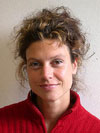 |
Berit JunkerSwiss Institute for Forest, Snow and Landscape Research (WSL) Brasov Training |
Case Study: River Restorations |
|
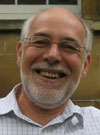 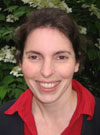 |
Peter Nelson and Maritta BodenMembers of Land Use Consultants (LUC) Brasov Training |
LUC is one of the leading environmental planning practices in the United Kingdom. Founded in 1969 by conservationist, Max Nicholson, the company has strong sustainability ethics and employs 100 people in office in London Bristol and Glasgow. The company specialises in environmental planning, design and management. Peter Nelson MA MSc DipTRP MRTPI studied Physical Geography and Geology at University, followed by a Masters degree in Hydrology and Ecology. Peter is a Principal of LUC. He is a qualified town and regional planner with over 30 years experience and has extensive experience of directing and undertaking SEA and SA. In the UK Peter has been responsible for directing the majority of SEAs undertaken by the Bristol Office, including work for government departments, local authorities and NGOs, including Birdlife International. Peter has helped to develop Government good practice guidelines on EIA, SEA and Sustainability Appraisal. He has prepared more than 20 EIAs on mining, water, waste disposal, new housing, roads, rail, forestry and tourism projects. He also directed research on the costs and benefits of EIA and SEA for DGXI of the European Commission, involving comparative case studies in member states. Peter’s interests include the development of SEA and integrated environmental appraisal methods at an international level. He led the workshop on SEA and Spatial Planning at the IAIA International SEA conference in Prague in September2005. He also presented a paper on SEA applied to regional spatial planning to the Plan net Seminar in Brussels in October 2005. Peter is currently undertaking a Sustainability Impact Appraisal of the Forest Sector relating to the EU-South America Mercosur Free Trade Agreement under the three year framework contract for the European Union, led by the University of Manchester. He is also team leader of the SEA of the Forestry Act in Kenya and SEA of the Draft Spatial Plan for Montenegro for the World Bank. Other recent assignments include work in South Africa, Tanzania, Ghana and Gibraltar for the UK Department for International Development and the respective governments. He is a member of the OECD-DAC working group preparing guidance on SEA for developing countries. Peter regularly runs, and takes part in, training courses for mid-career professionals and has taught the practice of EIA and SEA at the Universities of Bradford, Manchester, Plymouth, Oxford Brookes and the Central European University in Budapest. Maritta Boden BA Hons, MLI, MSc is an environmental assessor, senior landscape architect and an Associate of the Bristol office. Maritta has a Masters in Environmental Impact Assessment. Her main areas of interest focus on three particular fields; strategic environmental assessment, recreation and tourism and landscape characterisation. In addition to her involvement with a number of project-based EIAs, Maritta has worked on minerals, waste and urban planning sustainability appraisals and SEAs. She assisted in the SEA of the Poverty Reduction strategy for Ghana, an SEA of the Gibraltar Local Plan and the Draft Spatial Plan for Montenegro She has extensive experience of rural transport issues and tourism, having carried out a wide range of studies in this field. Case Study: The use of Sustainability Appraisal and Strategic Environmental Assessment of Spatial and Urban Plans in Europe |
|
 |
Axel OleariusAdvisor to the German Technical Cooperation (GTZ) Krakow Training |
Axel is an advisor to the German Technical Cooperation
(GTZ), a government-owned corporation which provides services that
support development and reform processes in developing countries.
On behalf of the Federal Ministry of Economic Cooperation and Development
(BMZ) his project supports strategies for sustainable development
and serves as a focal point for approaches to Strategic Environmental
Assessment. Case Study: Strategic Environmental Assessment in Development Cooperation: A case study description on a Pilot SEA of the Vinh Phuc Province Socio-Economic Development Plan in Vietnam |
|
 |
Michal SedlackoFreelance consultant Krakow Training |
Michal Sedlacko is a freelance consultant currently working on projects for both the state sector and the World Bank. Since 2002, he has worked in various positions at the UNDP in Bratislava, Slovakia helping to implement UNDP’s regional communication strategy and directly responsible for the implementation of a number of sustainability related projects. In addition to his professional work, Michal is in the final stages of writing up his PhD in the International Relations stream at the Department of International Economics, dissertation thesis title: A contemporary look at the idea of sustainable development (with a focus on the institutional dimension). His background is in international relations, where he took a specific interest in multilateral environmental diplomacy. Michal is into music, mountain biking and food. Case Study: Ex Ante Evaluation of the Operational Program Education of the National Strategic Reference Framework 2007-2013 of the Slovak Republic |
|
Tutors 
Bratislava Training |
Katarína Staronová is a researcher at the Slovak Governance Institute based in Bratislava, Slovakia. She also works as a freelance consultant and researcher in the spheres of policy formulation, strategy development, public administration and impact assessment. She has worked extensively in central and eastern European countries, the Balkans and on several international missions to Africa and the Americas. Her academic background in international relations and public administration based in both the USA and central Europe have culminated in her being awarded her PhD in Theory of Politics, specifically focusing on her thesis ‘Capacity to Govern in Transition Countries: The Case of Slovakia and Croatia’. Katarína is a keen traveller and has toured extensively in Scandinavia, USA, Central America, Africa, and the Near East. |
Brasov Training |
Currently Sebastian is conducting his PhD within the inter- and transdisciplinary doctoral school «Sustainable Development» at the University of Natural Resources and Applied Life Sciences (Boku) in Vienna (Austria). His research project is about temporal and spatial scales of a sustainable development and their implications on planning processes and decision making. His field of expertise comprises participatory planning and decision making, sustainability science, evaluation of (transdisciplinary) research, and self-guided learning processes. Sebastian brings in his experience as a participant of the EASY ECO training course in Szentendre, Hungary (02/2006) and the EASY ECO conference in Saarbrücken, Germany (10/2006).
|
Krakow Training |
His general research interests fall within the disciplines of ekistics, landscape architecture and urban design, with main focus on environmental aesthetics, spatial management, sustainable community development, communication design and evaluation of sustainable urban development. The aim of this work is to generate methodologies and cultural discourses which help in dialogue between expert and local vernacular knowledges. Tomasz has taken part in a number of exhibitions of his individual and collective designs, graphics and paintings, mainly in Poland, in well respected galleries, including the Czartoryski Gallery of National Museum in Krakow and the Industrial Design Institute in Warsaw.
|
| EASY-ECO |
EvAluation of SustainabilitY
- European COnferences & Training
Courses (c) 2004-2025 RIMAS — Research Institute for Managing Sustainability (co-ordinator) Vienna University of Economics and Business (WU) Franz Klein Gasse 1 A-1190 Vienna |
 |
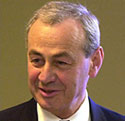
 Tomasz
Bergier is a teacher and an adjunct researcher in the Institute
of Environmental Protection and Management of the AGH – University
of Science and Technology in Krakow, Poland. His professional interests
include the practical applications of sustainable development, especially
sustainable water management and ecological engineering. His research
interests include techniques to evaluate and assess investments
and technological processes that apply sustainable development principles
His doctoral research examined landfill leachate treatment using
constructed wetlands. Tomasz has closely co-operated with the Sendzimir
Foundation for some time and since 1998 has been their principal
local coordinator in organising various courses focusing on sustainable
development. He is also responsible for managing of the TSF alumni
network and worked as a lecturer Sendzimir Foundation courses. Outside
of work, Tomasz is a keen cyclist and enjoys (amongst other, less
demanding pursuits) competing in various marathons and adventure
competitions.
Tomasz
Bergier is a teacher and an adjunct researcher in the Institute
of Environmental Protection and Management of the AGH – University
of Science and Technology in Krakow, Poland. His professional interests
include the practical applications of sustainable development, especially
sustainable water management and ecological engineering. His research
interests include techniques to evaluate and assess investments
and technological processes that apply sustainable development principles
His doctoral research examined landfill leachate treatment using
constructed wetlands. Tomasz has closely co-operated with the Sendzimir
Foundation for some time and since 1998 has been their principal
local coordinator in organising various courses focusing on sustainable
development. He is also responsible for managing of the TSF alumni
network and worked as a lecturer Sendzimir Foundation courses. Outside
of work, Tomasz is a keen cyclist and enjoys (amongst other, less
demanding pursuits) competing in various marathons and adventure
competitions.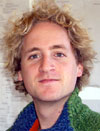 Sebastian
Helgenberger (born in 1978) has studied 'Environmental Sciences'
at the Universities of Lüneburg (Germany), Bilbao (Spain), and
the Federal Institute of Technology (ETH) Zurich (Switzerland).
He conducted his masters thesis on an
Sebastian
Helgenberger (born in 1978) has studied 'Environmental Sciences'
at the Universities of Lüneburg (Germany), Bilbao (Spain), and
the Federal Institute of Technology (ETH) Zurich (Switzerland).
He conducted his masters thesis on an  Monica
Pandele is a doctoral candidate at the Institute for
Applied Geosciences - University of Tuebingen, Germany. Her
present professional interests focus on the management of contaminated
land and groundwater, more specifically the strategic planning
of decontamination strategies and their redevelopment potential
in a sustainable context. For this research subject she has
been awarded a three year scholarship from the Deutsche Bundesstiftung
Umwelt (DBU). Previously she conducted studies on EIA matters,
including an analysis of the importance and relevance of ecological
parameters on the decision-making process and the development
of an LCA platform for estimating the environmental burdens
of several remediation technologies. Having a background in
ecology - biology, Monica is also very interested in genetics,
ecology and biodiversity (conservation) issues. Dogs, gardening
and climbing are things she loves to spend her free time with.
Monica
Pandele is a doctoral candidate at the Institute for
Applied Geosciences - University of Tuebingen, Germany. Her
present professional interests focus on the management of contaminated
land and groundwater, more specifically the strategic planning
of decontamination strategies and their redevelopment potential
in a sustainable context. For this research subject she has
been awarded a three year scholarship from the Deutsche Bundesstiftung
Umwelt (DBU). Previously she conducted studies on EIA matters,
including an analysis of the importance and relevance of ecological
parameters on the decision-making process and the development
of an LCA platform for estimating the environmental burdens
of several remediation technologies. Having a background in
ecology - biology, Monica is also very interested in genetics,
ecology and biodiversity (conservation) issues. Dogs, gardening
and climbing are things she loves to spend her free time with. Nicola
Tollin, born in Italy in 1972, has a degree in architecture
from the University of Architecture of Venice, including a long
stage at the Institute for Metropolitan Studies at the Universitat
Autonoma de Barcelona, with a specialization in urban and regional
planning.
After a research fellowship at the Technical University of Denmark, Nicola started
his PhD studies at the UNESCO Chair of Sustainability at the Technical University
of Catalunya, awarding this year the Diploma for Advanced Studies DEA. At the
moment, he his preparing his thesis work titled: Systems Dynamics
and Future Scenarios in Integrated Evaluation for Urban Sustainable Development:
toward a methodology to support decision making processes with
main focus on urban sustainable development, decision making processes, integrated
evaluation of sustainable development and system thinking.
Nicola
Tollin, born in Italy in 1972, has a degree in architecture
from the University of Architecture of Venice, including a long
stage at the Institute for Metropolitan Studies at the Universitat
Autonoma de Barcelona, with a specialization in urban and regional
planning.
After a research fellowship at the Technical University of Denmark, Nicola started
his PhD studies at the UNESCO Chair of Sustainability at the Technical University
of Catalunya, awarding this year the Diploma for Advanced Studies DEA. At the
moment, he his preparing his thesis work titled: Systems Dynamics
and Future Scenarios in Integrated Evaluation for Urban Sustainable Development:
toward a methodology to support decision making processes with
main focus on urban sustainable development, decision making processes, integrated
evaluation of sustainable development and system thinking.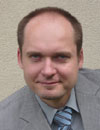 Tomasz
Jelenski is a researcher and lecturer at the Cracow
University of Technology in Krakow and the University of Information
Technology and Management in Rzeszow. He is also the director
of the International Educational Centre at CUT. Tomasz has a
MA from the Krakow Academy of Fine Arts and a PhD in architecture
from the Cracow University of Technology. During the 2004/2005
academic year, he was a visiting tutor on the MA course in urban
design at Cardiff University. Since 2006 he co-operates with
the Sendzimir Foundation as a tutor and lecturer on the courses
‘Challenges of Sustainable Development in Poland’.
Tomasz
Jelenski is a researcher and lecturer at the Cracow
University of Technology in Krakow and the University of Information
Technology and Management in Rzeszow. He is also the director
of the International Educational Centre at CUT. Tomasz has a
MA from the Krakow Academy of Fine Arts and a PhD in architecture
from the Cracow University of Technology. During the 2004/2005
academic year, he was a visiting tutor on the MA course in urban
design at Cardiff University. Since 2006 he co-operates with
the Sendzimir Foundation as a tutor and lecturer on the courses
‘Challenges of Sustainable Development in Poland’.  Keti
Medarova-Bergström is a doctoral candidate at the Department of
Environmental Sciences and Policy, Central European University
(CEU) in Budapest, Hungary. Her research focus is on the integration
of environmental concerns into regional development policies and
particularly the EU pre-accession, structural and cohesion funds
for Bulgaria. She is also a research associate at the Center for
Environmental Policy and Law at CEU working within the Governance
and Environmental Justice programs.
Keti
Medarova-Bergström is a doctoral candidate at the Department of
Environmental Sciences and Policy, Central European University
(CEU) in Budapest, Hungary. Her research focus is on the integration
of environmental concerns into regional development policies and
particularly the EU pre-accession, structural and cohesion funds
for Bulgaria. She is also a research associate at the Center for
Environmental Policy and Law at CEU working within the Governance
and Environmental Justice programs.  Elisabeth
Wegner studied psychology at the Universities of Freiburg,
Basel and Nottingham with a special focus on environmental psychology.
She worked for the Fraunhofer Institute for Solar Energy Systems
(ISE)
in the area of project evaluation and training conception in development
cooperation. Currently she is working for the ECOLOG-Institute
for social-ecologic research and education in the area of sustainability
communication. Her special interest is the development of criteria
for
successful sustainability communication measures. Elisabeth is
also
member of the initative for psychology in environmental protection.
Elisabeth
Wegner studied psychology at the Universities of Freiburg,
Basel and Nottingham with a special focus on environmental psychology.
She worked for the Fraunhofer Institute for Solar Energy Systems
(ISE)
in the area of project evaluation and training conception in development
cooperation. Currently she is working for the ECOLOG-Institute
for social-ecologic research and education in the area of sustainability
communication. Her special interest is the development of criteria
for
successful sustainability communication measures. Elisabeth is
also
member of the initative for psychology in environmental protection.